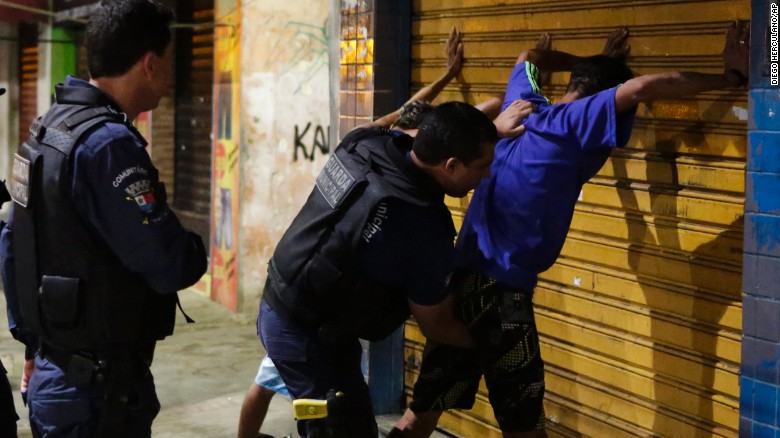Wave of deadly violence follows police walkout in Brazilian city
More than one hundred people have been killed and several more injured in the Brazilian city of Vitoria this week, after military police officers staged a walkout to demand better salaries and benefits.
Officers haven't reported for work since Saturday, while their family members have been protesting in front of police stations and blocking police cars, preventing them from circulating.
Military police are responsible for much of the day to day policing in the city. Due to their military status, military police officers are not authorized to officially strike in Brazil.
If caught, they could be discharged and face up to two years in prison. The civil police force in the city is not on strike, though they have expressed support for the walkout.
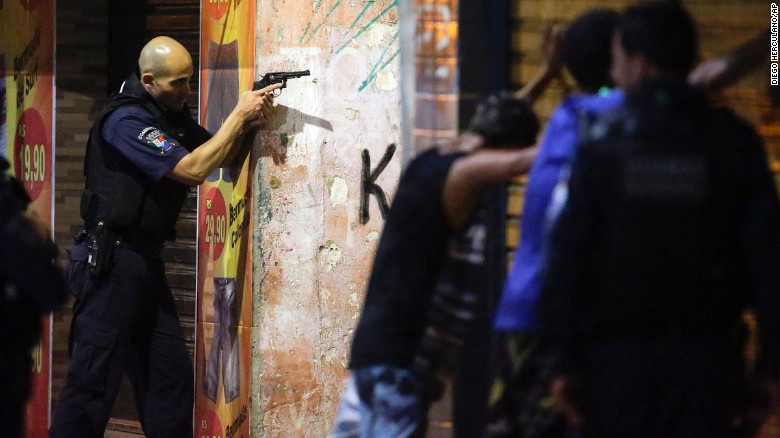
A municipal guard aims his weapon as two men are searched in Vitoria.
At least 110 people have been killed in the five days since the walkout began, civil police homicide investigator Walter Santana Lopes told CNN. The lack of policing has also led to an increase in robberies and looting.
"There was one day where we registered 40 homicides," Santana Lopes said. "We usually don't see more than twenty in a month."
Vitoria is the capital of Espirito Santo state, which saw 37.4 violent deaths for every 100 thousand residents in 2015, according to the Annual Brazilian Public Safety Report.
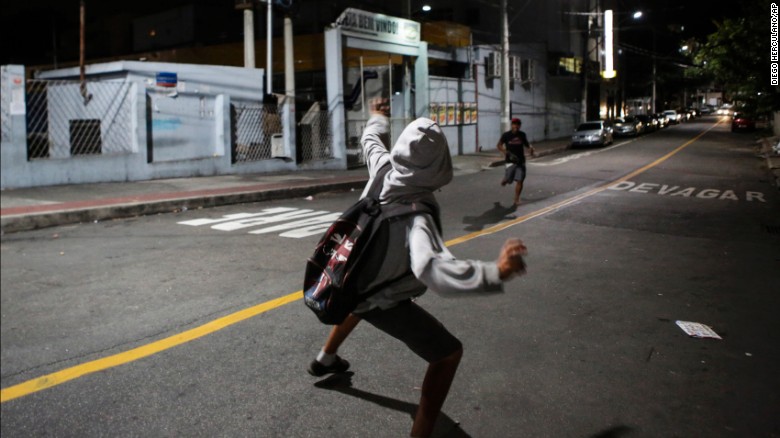
A man prepares to throw a rock at a supermarket.
The wave of violence has created a state of chaos and fear in the city. Businesses and schools have been shut down and city buses taken out of circulation.
Thousands of people have taken to social media, posting and reporting attacks and incidents of violence using the hashtag "#Espedesocorro" (Espirito Santo needs help). Video posted to social media appeared to show carjackings in broad daylight, people being robbed at a bus station, a shootout taking place in the street and stores being looted.
Through the Facebook page, "Movimento das Familias PMES" (Movement of the Families of Espirito Santo's Military Police) organizers said officers will only return to their posts once the state government approves a 100% salary increase.
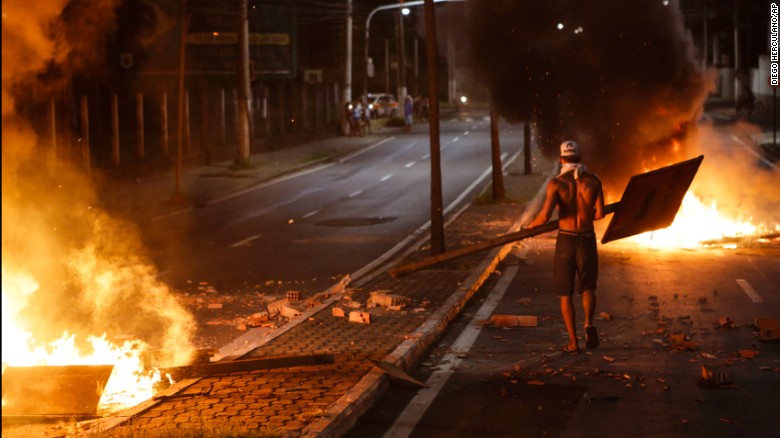
A man carries a sign to throw on a barricade.
"We want them to receive 50% for the readjustment they haven't seen in the past three years and 50% for the raise they haven't received in seven," one of the leaders of the group said through a video message posted to the Facebook page.
Espirito Santo state has the country's fourth lowest military police salary, according to a 2015 study by the National Association of Representative Entities for Military Police and Firefighters, with an average base of BRL $2633 a month (roughly $840). The highest is in the Brazilian capital Brasilia, where officers earn an average base salary of BRL $7190 a month (roughly $2,300).
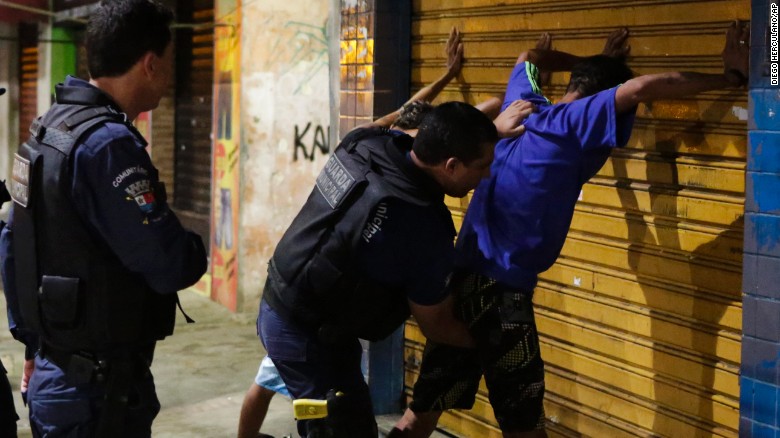
Municipal guards search suspects.
During a recent press conference, Espirito Santo governor Paulo Hartung accused the group of "open blackmail."
"This movement is illegal and unconstitutional," Hartung said Wednesday. "They should be ashamed of themselves."
Since the walkout began, at least 1,200 members of the Brazilian Armed Forces have been patrolling several cities throughout the state, after the governor's office requested back up from the Ministry of Defense.
These latest incidents come after a violent start to the year in Brazil. At least 130 inmates were killed after several prison riots erupted in the north and northeast of the country. In some cities, like Natal and Manaus, the violence spread beyond the prison gates forcing the federal government to deploy hundreds of military troops.
News Courtesy: www.cnn.com

